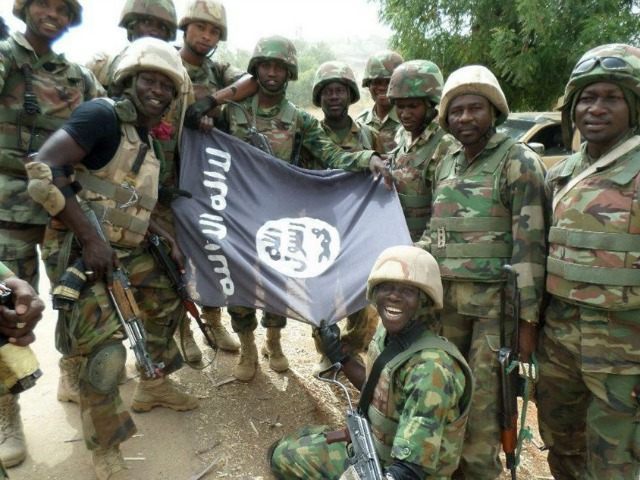The persistence of the Boko Haram terrorist group in Nigeria and neighboring countries is fueled by an alarming lack of organization and distrust among intelligence officials, keeping essential information from getting to those who need it in time.
So argues a report in the New York Times, which accuses the governments of Cameroon, Chad, Niger, and Nigeria of being inefficient at sharing relevant intelligence regarding the plans and locations of members of the Islamic State-affiliated terrorist organization, which has terrorized villages in northeast Nigeria and expanded its influence across the Lake Chad area. The Times describes the problem as two-fold: national intelligence services not sharing with each other, and individuals within these services not sharing among their own peers.
“The Pentagon and American intelligence services have struggled at times to provide information quickly about Boko Haram militants to the African countries — Cameroon, Chad, Niger and Nigeria — without violating restrictions on what can be shared from spy satellite imagery or electronic eavesdropping within rules for not disclosing sources and methods,” the report notes. The lack of trust also pervades America and other Western officials working on the ground, who “until recently… provided only sanitized intelligence reports to the Nigerian military” for fear of the information being misused.
Nigeria is at the core of American concerns. Previous reports have revealed that the Nigerian military is vulnerable to infiltration by Boko Haram supporters, with some even providing arms to the jihadist group. “The big unanswered question right now is how much are all those five countries that are participating going to collaborate and work effectively,” Col. Robert Wilson, who commands American Special Forces in North and West Africa, tells the Times.
The situation has gotten better under the leadership of President Muhammadu Buhari, who assumed the role of head of state of Nigeria last year. It was shortly after his election victory, but before his inauguration, that the president of neighboring Chad, Idriss Deby, made his frustrations with Nigeria the clearest. “It is regrettable that the two armies, that is the Nigerian army and the Chadian Army, are working separately in the field… If they were operating jointly, they would have achieved more results,” he said in a speech in May 2015.
“We want the Nigerians to come and occupy, so we can advance,” he protested, noting that the Chadian army could not move on to other Boko Haram-populated areas because the Nigerian army, partly because of a lack of intelligence, did not come to Nigerian areas to establish government control once more. When the Chadian soldiers left, Boko Haram terrorists would re-invade the villages. Allowing Boko Haram to flourish across the border put Chadian citizens in danger, Deby argued, but “we are not an army of occupation.”
Chad is home to what the Times describes as an intelligence “fusion center,” which has taken months to get off the ground but appears to be yielding some results. A glimmer of hope cited by multiple American sources is that, while the nations may not trust each other, they all seem to trust American soldiers. “My guys are now coffee-breath close to our partners in the Lake Chad basin. As a result, we have developed relationships of trust,” Brig. Gen. Donald C. Bolduc, who is in charge of American Special Operations forces in Africa, said in an interview.
President Buhari has spent much of the beginning of his tenure attempting to strengthen bilateral relations with neighboring countries. His various trips abroad have triggered criticism at home about where he should focus his attention. Foreign Affairs Minister Geoffrey Onyeama told reporters Monday that critics are diminishing Buhari’s efforts to eradicate the terrorist group. “When the President assumed office, the problem at that time was how to get the confidence of neighbouring countries to support the war on terror. So, what the President did was to travel to Chad, Cameroun and other neighbouring countries to seek a joint coalition, and now we can all see the results the country is recording against Boko Haram,“ he told Nigerian newspaper Leadership.

COMMENTS
Please let us know if you're having issues with commenting.